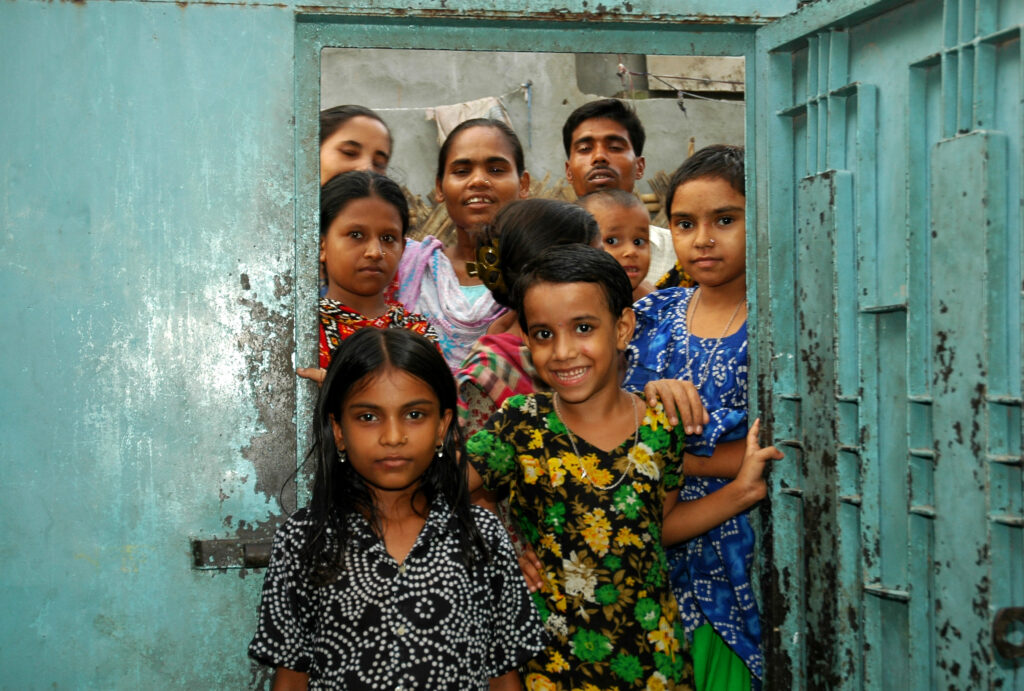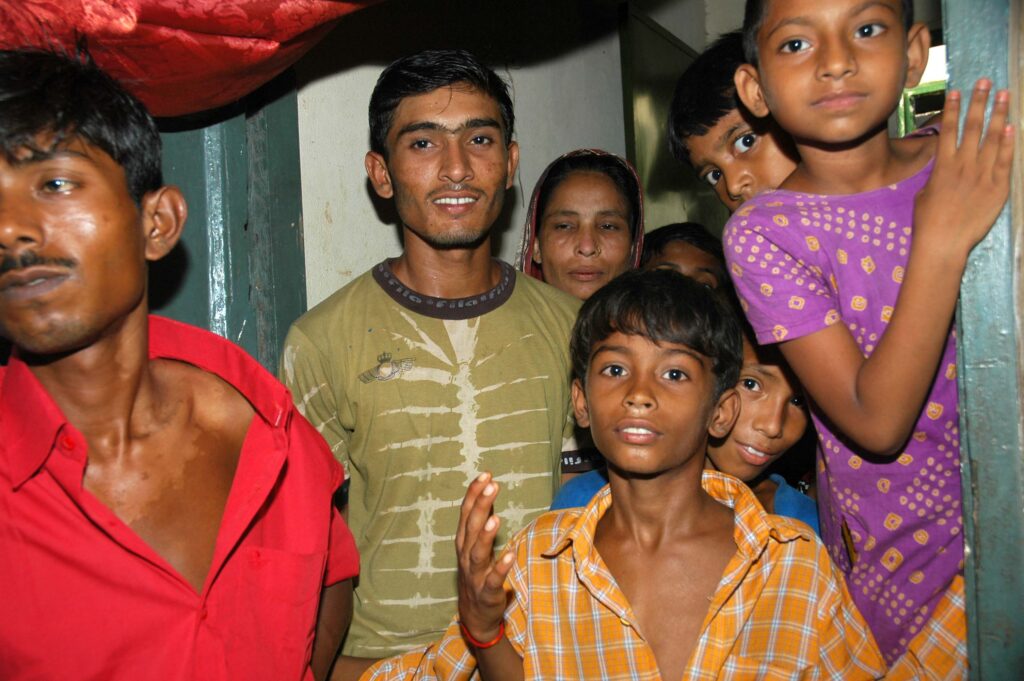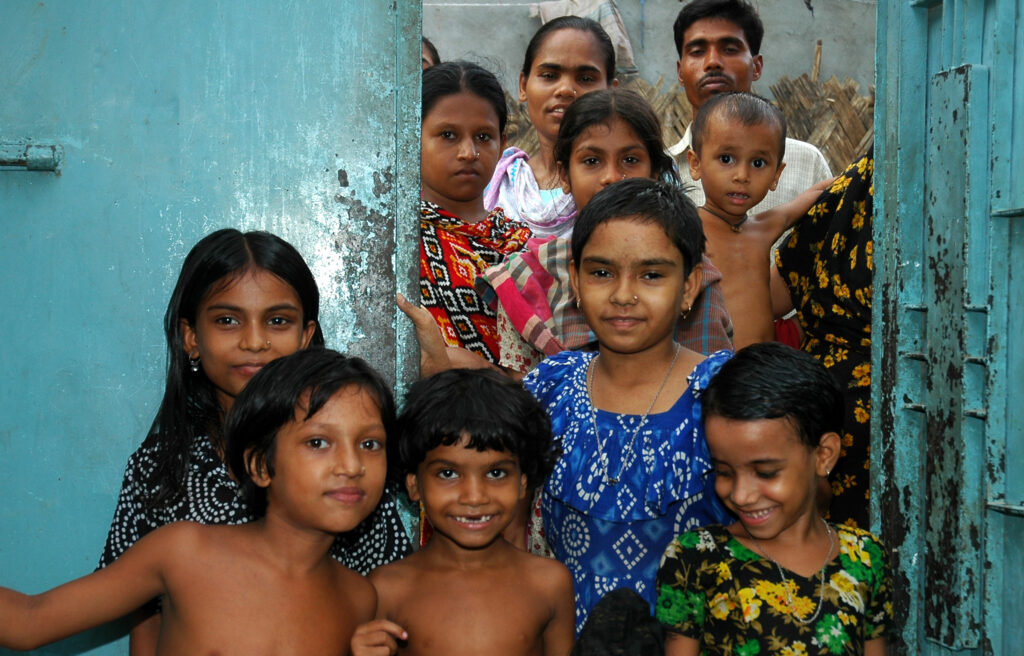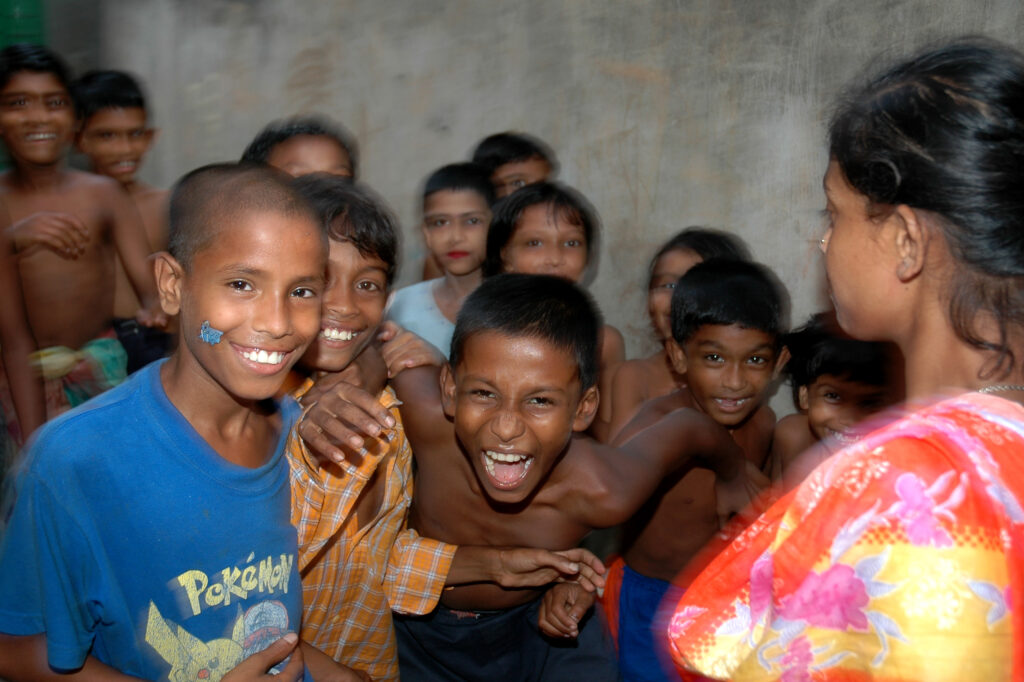Abdul Sattar is married, has 2 daughters and lives in Hazipara. He is originally from Bogra district and has been a rickshaw wallah for 25 years.
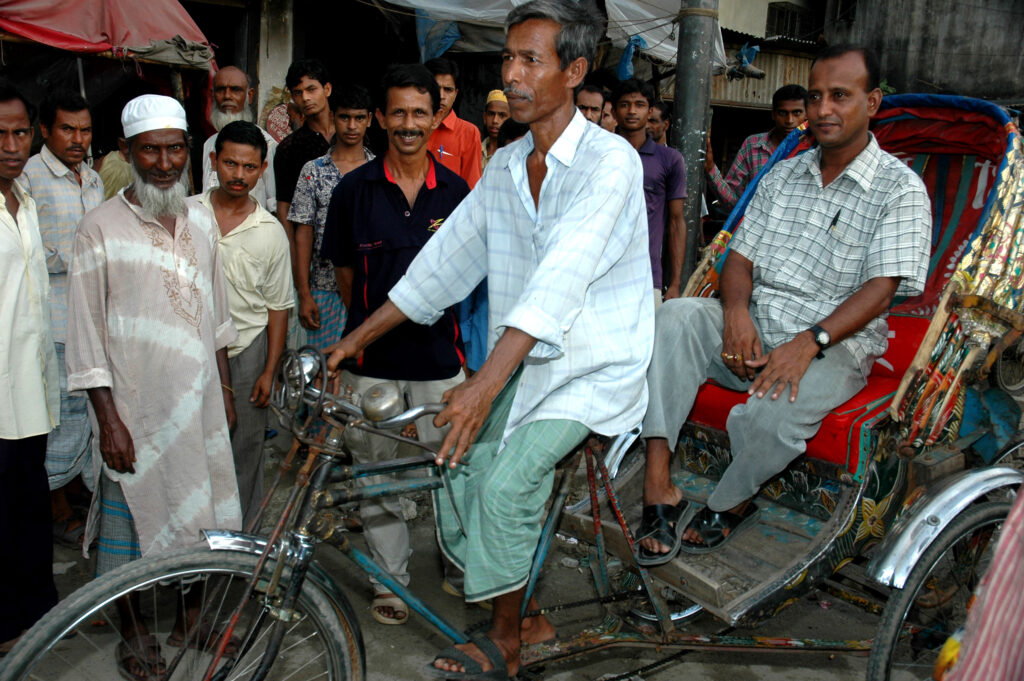
Rickshaws have been an integral part of Dhaka’s identity and everyday life of the city’s residents for many years. It is a very convenient form of transport and takes a person from door to door, which means that no one has to undertake any walking. On the other hand, rickshaws also enable a large number of poor people to work and consequently provide a means of living for them and their dependents.
Although this convenience probably makes some people very lazy nevertheless rickshaws have been an inseparable part of the life of the people of Bangladesh. However, in recent years many roads in the City have become rickshaw free to enable a faster flow to motorised vehicles.
It used to bring Abdul Sattar a reasonable income in the past but now, as he is much older and weaker, he cannot work the full-day shift, consequently, his income has also reduced. His previous income was between 250-300 taka per day (less than three pounds sterling) but it has now halved. On top of that, the half-day rental of rickshaws has also gone up from 30 taka to 50 taka per day. One of his daughters is married and lives in the village while the other daughter works in a local garment factory. The second daughter, aged eighteen, was married and has a child but is now divorced. Together with the daughter’s income, they maintain the family.
Abdul Sattar and his wife do not like Dhaka City anymore and feel that people in the City are no longer as friendly as they used to be and therefore they are now seriously considering going back to their village to resettle permanently. His wife is no longer happy to live in rental accommodation. On the question of how they will make a living, he is thinking of setting up a business.
